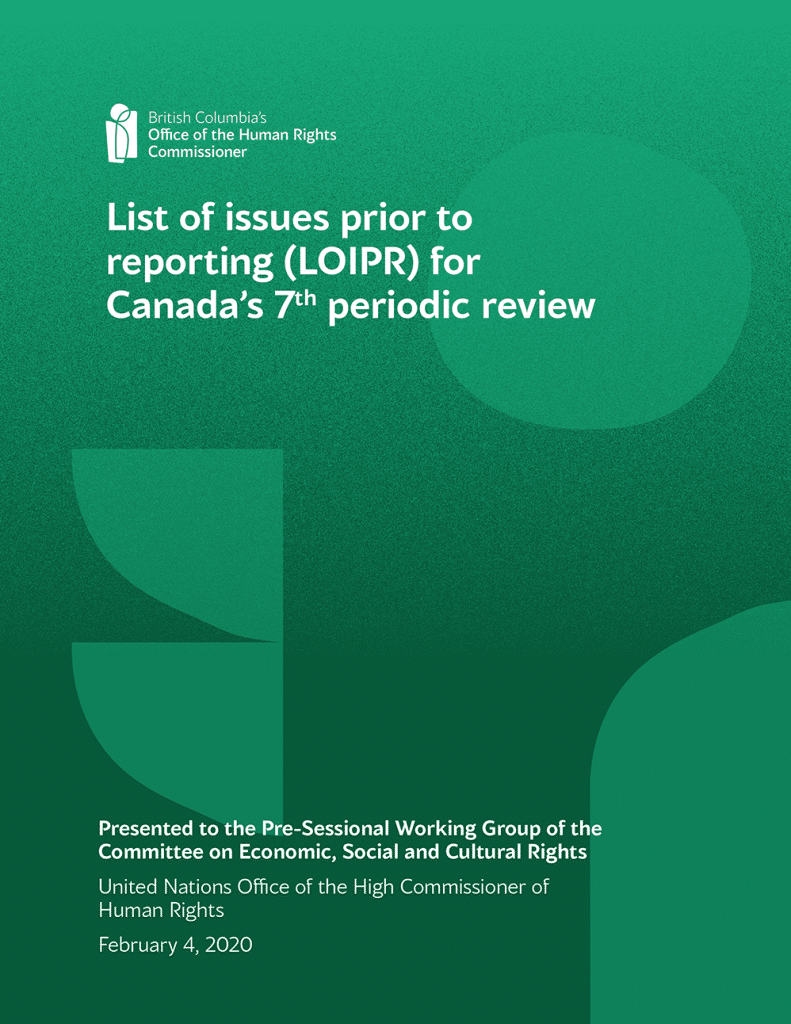Under international law, economic rights—like the right to an ‘adequate standard of living’ through necessities like food, water and housing—are protected. These basic rights—as well as rights to education, health care, work and more—are contained within the United Nations International Covenant on Economic, Social and Cultural Rights (ICESCR), which Canada ratified in 1976.
However, these rights are not currently protected under Canadian domestic law, which makes them difficult to enforce. B.C.’s Human Rights Commissioner is committed to ensuring that there are domestic protections for economic rights. One way we work towards this is by engaging with the United Nations’ periodic review process, which looks at how countries are doing in relation to the rights outlined in the ICESCR.
Every few years, the UN reviews countries for their performance in realizing these rights. At the current stage in the process, entities like B.C.’s Human Rights Commissioner have an opportunity to provide guidance to the UN on what questions they should be asking Canada. Our submission draws from and builds on the work of other human rights commissions across the country and community groups with grounded expertise in the issues.
So, how do B.C. and Canada measure up to our international commitments to ensure an adequate standard of living?
B.C.’s Human Rights Commissioner is concerned that economic, social and cultural rights—such as access to necessities like food, water and housing—continue to be routinely violated in Canada. In particular, all levels of government within Canada have a responsibility to make sure that social assistance rates (“welfare”) are not below the poverty line and instead live up to the right to an “adequate standard of living,” which includes the right to food and housing. Yet, poverty in British Columbia is high with one in 10 people living in poverty and the basic assistance rate is still less than 50 per cent of the poverty line.

If the version available via this page is not accessible for you, please feel welcome to contact our Office to request a printed copy or another format that meets your needs.
